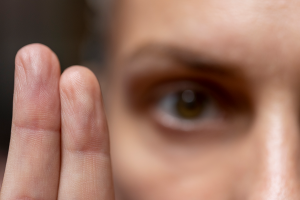Depression is often associated with sadness, lack of motivation, and feelings of hopelessness. However, one lesser-known yet impactful symptom is its effect on memory. Many people with depression report experiencing forgetfulness, difficulty concentrating, and trouble retaining information. But does depression actually cause memory loss?
The short answer is: Yes, depression can affect memory, though it’s not memory loss in the traditional sense. Let’s explore how depression impacts memory and why this happens.
How Can Depression Affect Memory?
Depression often disrupts “working memory”, which is the ability to hold and process information in the short term. For instance, you might find it harder to remember a phone number long enough to dial it or recall a task you just planned to complete. Depression can impair focus and attention, which are essential for forming new memories. If you’re unable to fully concentrate on something, it becomes more difficult for your brain to encode and store that information.
While short-term memory is more commonly affected, depression can also make it harder to retrieve long-term memories. Some people describe this as a “mental fog” or feeling disconnected from their past. Depression also has a unique relationship with emotional memories. People with depression are more likely to recall negative memories over positive ones, which can perpetuate feelings of sadness and hopelessness. This phenomenon is known as **mood-congruent memory bias**.
So why does depression affect memory? The connection between depression and memory issues can be traced to how depression affects the brain:
1. Changes in the Hippocampus
The hippocampus, a part of the brain critical for memory and learning, can shrink during prolonged periods of depression. This shrinkage is believed to result from chronic stress and high levels of cortisol, a stress hormone associated with depression.
2. Impaired Neural Connectivity
Depression may reduce the connectivity between brain regions responsible for processing and storing memories. This can make it harder to organize and retrieve information.
3. Cognitive Fatigue
The mental and emotional exhaustion that often accompanies depression can make it more challenging to process and retain information, leading to lapses in memory.
4. Medications and Sleep Disturbances
Certain antidepressants and sleep disruptions common in depression can also contribute to memory issues. Sleep is essential for consolidating memories, and without adequate rest, your brain may struggle to retain new information.
Is Memory Loss from Depression Permanent?
The good news is that memory issues related to depression are typically not permanent. With effective treatment—such as depression therapy, medication, or lifestyle changes—many people find that their cognitive abilities, including memory, improve over time. Regular physical activity, stress management, and proper sleep can also play a role in recovery.
Tips for Improving Memory Issues
If you’re experiencing memory problems due to depression, here are some strategies to help:
- Write Things Down: Use a journal, planner, or app to keep track of important tasks, events, and reminders.
- Break Tasks into Smaller Steps: Large tasks can feel overwhelming and harder to remember. Break them down into smaller, manageable steps.
- Establish Routines: Create consistent daily routines to minimize the need to rely on memory for everyday tasks.
- Seek Treatment for Depression: Addressing the root cause—depression—through therapy, medication, or lifestyle changes can significantly reduce memory issues.
If memory problems are severe, worsening, or interfering with your daily life, consult a healthcare provider. They can help determine whether the memory issues are solely due to depression or if another condition, such as a neurological disorder, may be contributing. While depression can affect memory, understanding the connection can help you take proactive steps toward managing it. Remember, you’re not alone in this journey, and with the right support and treatment, both your mood and memory can improve. If you or someone you know is struggling with depression, don’t hesitate to seek professional help—it’s a crucial step toward healing.







